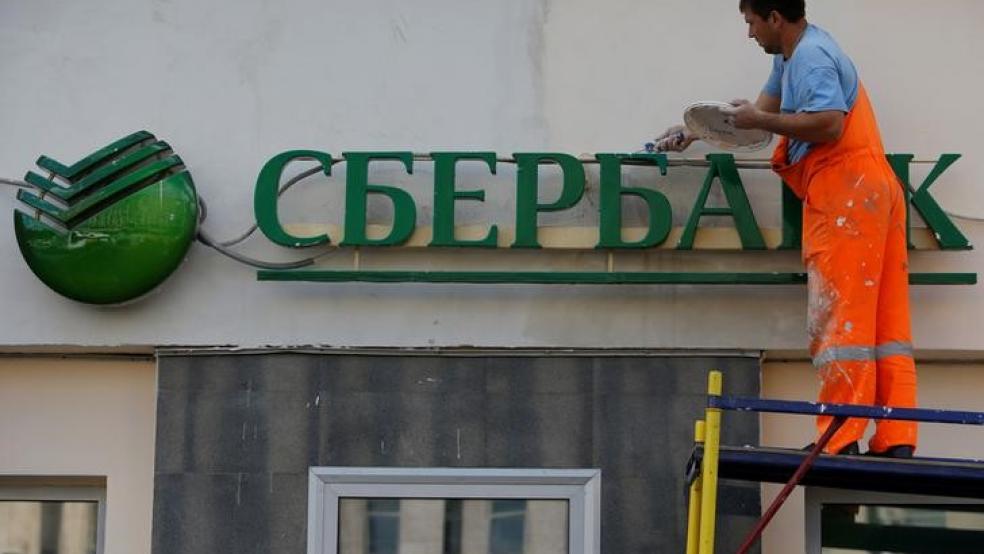LONDON (Reuters) - International asset managers appear unfazed by Washington's move to name a group of business "oligarchs" as close to the Kremlin, with many saying on Tuesday that they were seeking an opportunity to add to their Russia exposure.
The list compiled as part of a sanctions package signed into law in August named 210 people close to the Kremlin. The names include the heads of Russia's top two lenders Sberbank
and VTB , metals magnates from Norilsk Nickel , Rusal and Severstal and the boss of the state gas monopoly Gazprom .Bonds and stocks of many of the companies linked to the list are mainstays for portfolio investors outside Russia. "We have holdings in some of these oil companies, metals companies and bank," said Kathy Collins, EM corporate debt fund manager at Aberdeen Standard Investments. "If you take away the politics for a second, fundamentally these are good companies - they have survived lower oil prices, they have very low leverage, and we have been happy to hold them."Buoyed by synchronized global growth and low borrowing costs, emerging markets have enjoyed a stellar start to 2018, and oil prices near multi-year highs have provided additional support for Russia. Moody's said on Tuesday that Russia's economy has gained enough resilience to withstand new Western sanctions and may see its sovereign rating upgraded by year-end.Collins said she had hoped the list's publication would yield buying opportunities but these had failed to materialize.Russian corporate dollar-denominated debt listed in JPMorgan's CEMBI index <.jpmcrus> which reflects the premium demanded by investors had widened by as much as 27 basis points in late-2017, while the broader index <.jpmceb> added 23 bps.Equity fund managers such as Jupiter Asset Management's Colin Croft said markets had priced in bad news ahead of time. "History suggests that sanctions are not being terribly important for Russia or for the investment case - nonetheless, everyone is worrying about it," said Croft.He increased holdings of Sberbank shares last year when they came under pressure by Washington's decision to tighten the sanctions regime."There is just a very big contrast between people's worries and unnecessary panic and the fundamentals that are extremely healthy. Russia is one of those markets that tends to throw up those opportunities when people worry excessively," he added.Fund managers' reactions are in sharp contrast to last summer, when the U.S. signed new sanctions into law, pushing Russian dollar-denominated stocks <.irts> to multi-month lows.The index ended 2017 flat, compared to MSCI's wider emerging markets benchmark <.mscief> which soared 34 percent. The first sanctions round in 2014 cause an even bigger reaction, triggering huge selloffs across Russia's currency, bonds and stocks.So far year-to-date, Russian stocks have outperformed wider emerging markets, with Sberbank hitting an all-time high on Tuesday. The "oligarchs' list" document made clear it was not a sanctions list and inclusion should "in no way" be interpreted to mean those named were likely to be sanctioned. Looking at past measures, Manulife senior EM credit analyst Richard Segal said sanctioning individuals rather than companies had no practical implications. "This was a hurdle for investors to get over – but it seemed more like it was going to have a diplomatic impact than a market impact," he said.Markets were still awaiting another U.S. report outlining potential restrictions on foreign investment in Moscow's government debt or OFZs. The absence of the report helped push 10-year OFZs yields to 7.3 percent - its lowest since 2013 - with foreign buying credited for the move."Although we cannot fully dismiss the chances of restrictive measures against Russian sovereign financial instruments being introduced in the future, we believe that the current U.S. approach significantly diminishes the risk of harsh measures against Russian sovereign debt over the short-term," Societe Generale wrote in a note to clients. "We are re-instating a long position in OFZs." (Reporting by Karin Strohecker, additional reporting by Claire Milhench; Editing by Richard Balmforth)



